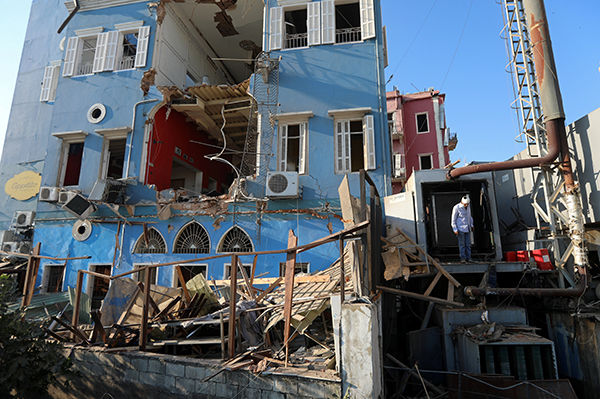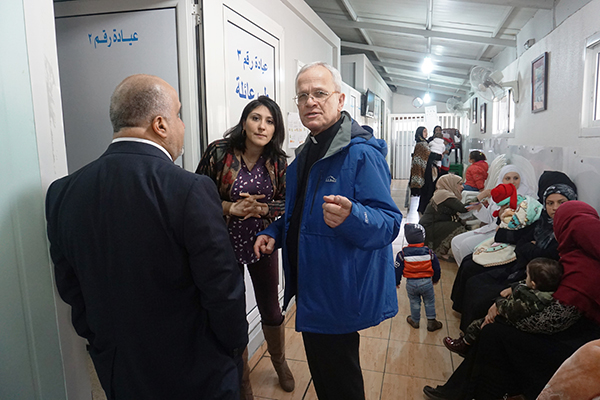
WINDSOR TERRACE — Of all of the things the people of Lebanon need right now, in their most dire hour, the biggest is hope, according to the leader of a Catholic organization helping on the ground in Beirut.
“The most pressing need in Lebanon is to have a glimpse of hope,” said Msgr. Peter Vaccari, the new president of the Catholic Near East Welfare Association (CNEWA).
CNEWA staffers have been on the ground in Lebanon working closely with partners to help the victims of the Aug. 4 explosion. One of the top priorities is to repair hospitals as quickly as possible, Msgr. Vaccari said.
The people of Lebanon “are in a desperate need for prayer, solidarity, and funds,” Msgr. Vaccari told The Tablet from his Manhattan office.
Msgr. Vaccari, who served as a priest in the Diocese of Brooklyn for many years following his ordination in 1977, has maintained close ties to religious leaders in New York.
He plans to attend a prayer service at Our Lady of Mount Lebanon Maronite Cathedral in Brooklyn Heights on Aug. 25. Brooklyn has a large population of Maronite Catholics, many of whom are Lebanese and have friends and relatives in Beirut.
The blast destroyed the port of Beirut, has killed more than 200 people, injured thousands of others, brought down buildings, and left an already fragile country on edge.
The explosion has also led to the collapse of Lebanon’s government. Six days after the blast, Prime Minister Hassan Diab announced that every member of his cabinet had resigned in the wake of massive anti-government protests in the streets.
Many Lebanese blame the government for the deadly blast, charging that the government was negligent in allowing highly-explosive ammonium nitrate to be stored in a building at the port.
CNEWA is currently raising funds for relief efforts and helping Beirut residents rebuild. Founded by Pope Pius XI in 1926, CNEWA helps refugees, offers health care to the poor, supports the education of seminarians, and funds programs for the elderly and disabled.
CNEWA had established a presence in Lebanon long before the explosion. The organization maintained an office in Beirut and had been working on the ground since 1949.
Its office was damaged in the blast but no one was seriously injured.
Msgr. Vaccari said he was deeply saddened by the fact that the Daughters of Charity, the religious order of nuns that has been ministering to the needy in Lebanon, suffered the death of one of its members.
“One of their sisters was killed and all of their homes were damaged,” he said.
Msgr. Vaccari, who took the helm of CNEWA on July 1, had previously served as vice president since the fall of 2019. He is the former rector of St. Joseph’s Seminary and College in Dunwoodie, New York, and previously served as the rector of the Seminary of the Immaculate Conception in Huntington, Long Island.
In his capacity as CNEWA vice president, he visited Beirut in February.

While the Aug. 4 explosion has been devastating, Lebanon was reeling long before the blast.
The nation was rife with political corruption, an ongoing economic crisis, a high unemployment rate, and other problems that were tearing the country apart. Add to that COVID-19, which “is a real issue on the ground in Lebanon,” according to Msgr. Vaccari.
The confluence of events “have all now converged” and accelerated the problems, according to Msgr. Vaccari, who said CNEWA workers in Beirut told him the other day that Lebanon is now “near a state of free-fall.”

The Lebanese people is really in need
The nuns of Charity were always on the vulnerable people sides
Actually they need to be supported
Thanks for thinking to help our Lebanon